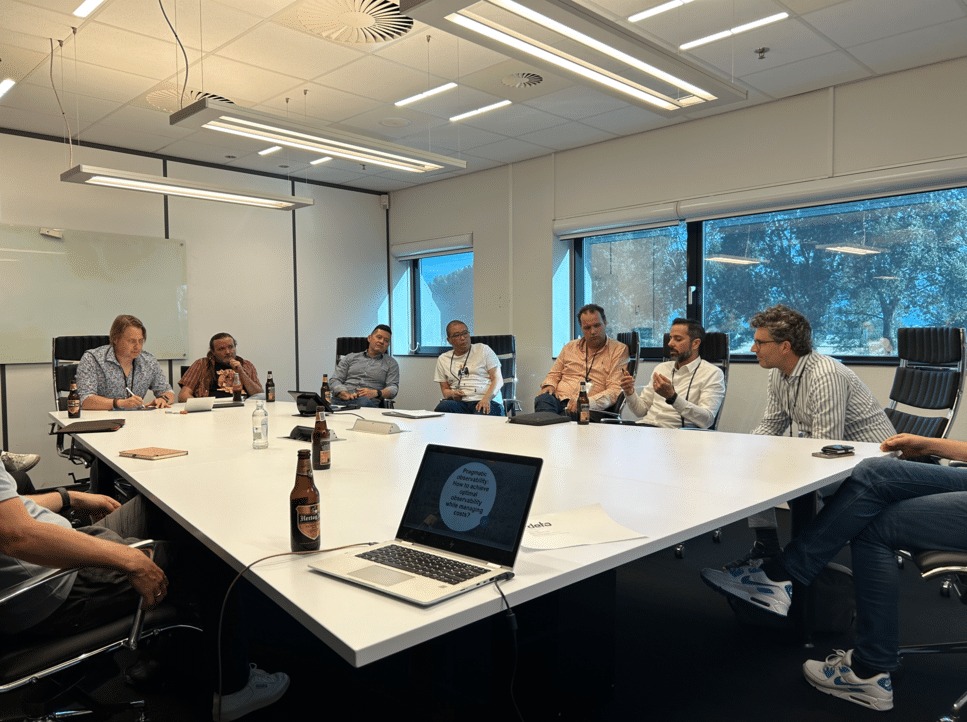We recently spoke with Juliana Nogueira, Recruiting Manager at FinLeap as part of our #TalentQA series where we interview leaders in talent management and recruitment from a range of businesses from tech startups to well-known fashion brands.
Juliana talks about the importance of maintaining the engagement of current employees and how both candidate experience and employer branding are crucial in today’s increasingly digital (and less-human) age.
Third Republic (TR): Could you explain a bit about your time working recruitment and how you got to where you are today?
Juliana Nogueira (JN): My first working experience was in recruitment, I was offered an internship at a well-known global agency in Brazil. At the time, I was working around 40 hours whilst still attending university. After finishing university, I decided it was time for something new and I always knew I wanted to move abroad and start an international career in recruitment. In my first job outside of Brazil, I worked for a London RPO. Since then, I have held recruiting positions for a wide range of different business in over 10 countries. My plan for this year was to focus on internal tech recruitment. I met with Finleap and now I’m the Recruiting Manager for them in Berlin.
TR: Could you explain the importance of candidate experience in today’s increasingly digital age?
JN: I definitely believe that candidate experience is the most important part of what we do. Everything else is a consequence of this. Recruiters and interviewers in general need to be aware of how people behave differently in today’s digital age. There are so many opportunities out there for candidates that it’s all about standing out. A great way to do this is with the experience that you offer candidates. The way that we deal with it is key. Candidates need to have their requirements and motivations listened to, not only their hard skills. Also, companies need to avoid taking a long time to respond to people and cut down lengthy processes. It’s crucial to be flexible and avoid wasting time throughout interviews. This will help to attract the top talent.
Of course, the main goal of a recruiter is to hire someone, however we have to remember culture fit. Hiring candidates purely based on the boxes they tick very rarely works out. You have to be sure that the candidates you hire are the right fit for the team they’ll be working in as well as the wider business.
TR: In your opinion, what is the importance of employer branding when it comes to engaging candidates?
JN: When it comes to the early stages of a business, it can be difficult to get company culture and employer branding out there and visible to candidates. Instagram is a great place to share day-to-day activities, allowing potential candidates to see for themselves whether they would be a good cultural fit.
It’s good to have a lot of employer branding material to share with candidates and give them as much information as possible. Doing everything you can to get your employer brand out there will almost certainly pique the interest of passive candidates. Whether they notice you at events or come across an interesting blog written by an employee on LinkedIn.
I also think it’s important to look at how employees are interacting with reviews on Glassdoor. Negative reviews should never be left. It’s important to respond to everyone and if need be, address these issues at interview stage. This way candidates know you care about your employees.
TR: Throughout your time in recruitment, have you noticed changes in candidate behaviours?
JN: First of all, from my international experience, I think it’s important to be aware that there are different behaviours in different markets across the globe. Saying that, I have noticed that the market is becoming more and more candidate driven. There are so many opportunities for candidates now and they’re easily accessible. Candidates have more of an option now to choose to join the business with the best USP for them.
This is amplified even more when it comes to tech roles, as there are new tech startups appearing all the time. Tech candidates are becoming desensitised to the amount of job openings. I’ve definitely noticed how important it has become for candidates to do as much research as possible about the company before blindly joining a new team.
TR: If so, how do you think businesses can best react to these changes?
JN: First of all, be aware of the changes. Don’t pretend they aren’t happening. It’s important to notice the changes and adapt your processes as necessary. Carrying out competitor research, for example. How are other companies communicating their employer brand and attracting top talent? Honesty and transparency are also crucial. Candidates expect feedback, whether they are successful or not. Create processes that allow for feedback to be given to all candidates that take the time to come and meet with you.
I also find that businesses often talk about how to attract new talent but forget to engage current employees. So, it’s important to create a culture that maintains the engagement of your current employees. Listen to them, find out what it is that might improve productivity and morale and demonstrate that you’re listening to them by making changes.
TR: What sort of strategies do you adopt in terms of attracting, engaging and securing talent at FinLeap?
JN: We have started to invest a lot more in events. We’ve really seen the value of attending various industry meetups and conferences. It’s an opportunity for us to share our culture, meet new people and has been great from a recruitment perspective because it gives potential candidates the opportunity to meet team members in a more informal setting. We’re always trying to be more flexible with recruitment processes where possible. In terms of keeping current employees engaged, we have introduced a new initiative to help bring employees together to share feedback and propose changes. We are also introducing various online materials for new and existing employees around the culture of the business and the tech that we’re working with.
TR: Could you explain some of the biggest changes that you have seen throughout your time working in recruitment?
JN: This question is a little tricky. I’ve worked with candidates in many countries and and not just in once place, so it’s a little hard to comment. However, I have noticed that more and more candidates want the opportunity to get to know their potential future team members. Short process with relevant, yet tailored information is something that I’ve seen in almost every country that I’ve worked. People’s needs are changing, and everything moves faster in today’s digital age. This means that we, as recruiters, must adapt in order to attract the top talent. I’ve also noticed much more of a focus on nurturing the future pipeline of talent. Encouraging young people to think about a career in tech will certainly help to close the skills gap.
TR: Looking forward, do you think the rise in digital and technology will continue to influence and alter the industry?
JN: Yes definitely. The rise in digital and technology has changed the way we interact with one another. This means that as recruiters, we have to be a lot more creative in the ways that we interact with candidates. People want a personalised experience, they want to feel important and not just like a number. So, although it’s always been important, communication really is key in today’s digital age. The rise in digital has cut direct human contact. So, it’s important that we’re aware of human interaction. Meeting candidates face-to-face as well as being present at events and conferences, is key to attracting and engaging talent. Also, the tools that we have now in terms of tracking data is definitely helping us to make better, more well-informed decisions.
TR: Finally, what advice would you offer to talent professionals in order to keep up to date with the ever-evolving world of recruitment?
RS: We can never stop being curious. And it’s important for the curious minds in teams to share their knowledge with their colleagues. Networking is so important – keep sharing new ideas with your teams, it will bring more awareness than keeping it to yourself. Join groups that will help you to learn more about both recruitment and the industry that you work in. Becoming a specialist in your market is key to success. Candidates want to have conversations with people who know what they’re talking about. Learn as much as you can, from as many people as you can.
If you’d like to take part in our #TalentQA series or you’re looking to source technical talent, get in touch today!




